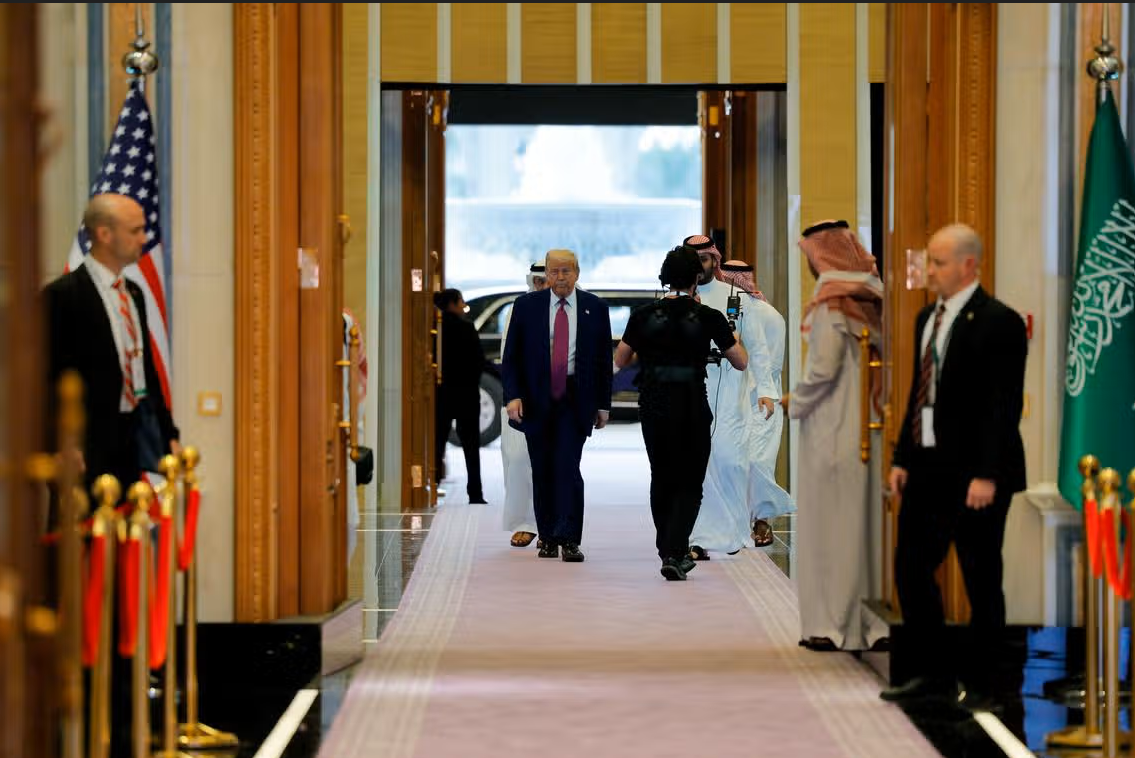Journalist Ali Al-Talqani said in a Facebook post that U.S. President Donald Trump’s visit to Gulf countries carries implications that go beyond diplomatic protocols, describing it as a “multi-billion dollar burger,” in reference to the scale of the economic and military deals signed during the tour and the shock they caused to regional power dynamics.
Al-Talqani explained that every official handshake during Trump’s tour was translated into a carefully calculated marketing opportunity, as if the Gulf’s influence map was about to be redrawn through heavyweight deals and strategic partnerships.
He pointed out that the scene of placing a McDonald’s truck in front of the Saudi royal palace was a symbolic message of merging American pop culture with formal hospitality rituals, considering this approach part of promotional economic diplomacy.
Regarding the Syrian issue, Al-Talqani noted that partially lifting U.S. sanctions on Damascus in exchange for oil concessions and investment commitments represents a qualitative shift in U.S. strategy toward Syria. He added: “Trump’s meeting with Ahmad Al-Shara after 25 years of estrangement reflects an American desire to rehabilitate the Syrian regime, on condition of distancing it from the Iranian axis and rebalancing regional alignments.”
Al-Talqani spoke about the impact of Trump’s tour on Iraq, saying: “Washington seeks to redeploy its forces toward Iraq’s border areas to cut off supply lines to armed factions, which will prompt Iraqi policymakers to reconsider oil export policies and pipeline routes in line with new alliances involving Gulf countries and Syria,” noting that this “puts the Baghdad-Washington security agreement under a reassessment lens.”
On the U.S. domestic front, Al-Talqani confirmed that Trump’s tour sparked a wave of criticism, especially after major news agencies were excluded from covering the presidential trips. He said: “This move sparked widespread controversy over conflicts of interest and the limits of presidential authority, bringing back concerns about press freedom.”
Al-Talqani added that “the arms deals and oil agreements signed during the tour reflect an increasing reliance on fossil fuels, which contradicts some Gulf states’ declared plans to transition to alternative energy.” He considered that “this contradiction reveals an internal struggle between strategies of quick profit and sustainable development ambitions.”
Economic Alliances with a Political Front
Al-Talqani concluded his statement by saying: “Trump’s tour is not just a political visit, but a mirror reflecting U.S. foreign policy trends that rely on the economy as a primary tool for building alliances,” questioning: “Will these relations yield solid partnerships, or will they remain within the realm of superficial, short-term deals?






Comments